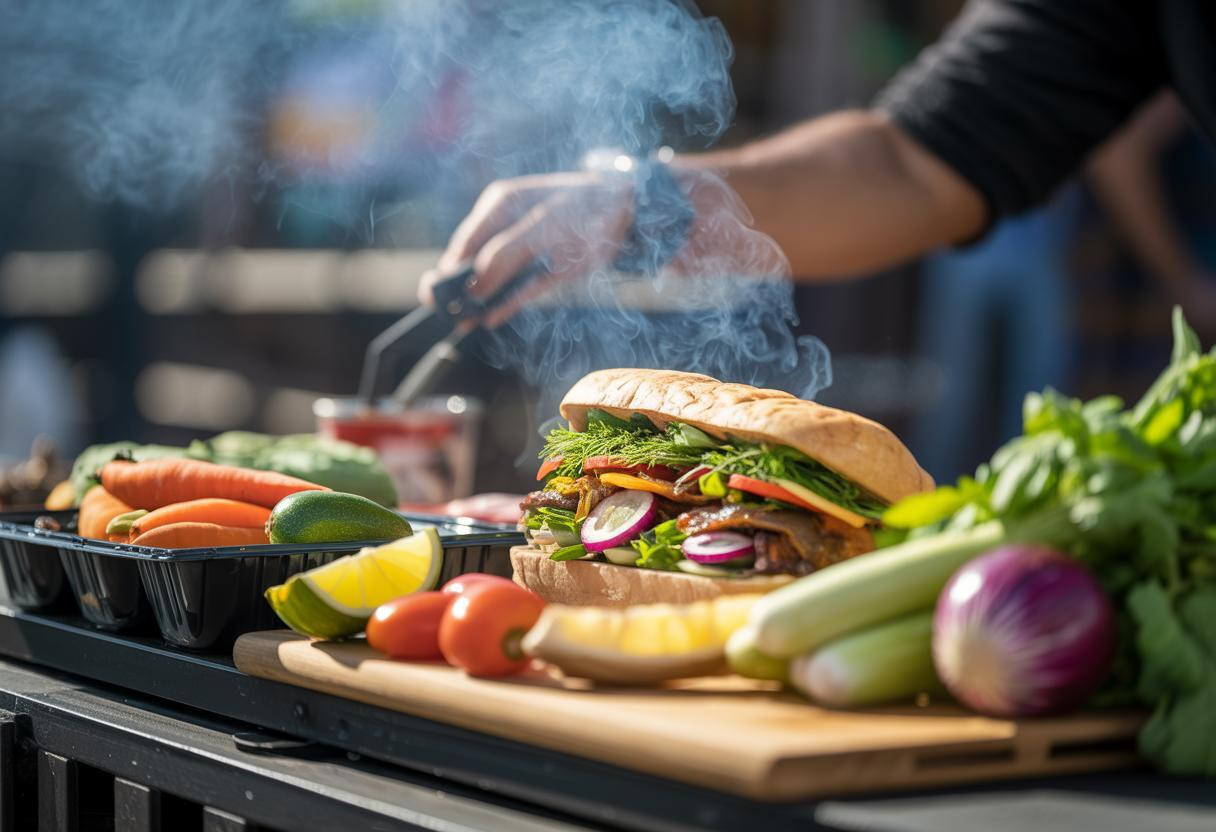A small barbecue food truck in Minnesota’s rugged North Shore has quietly revolutionized how rural food businesses can thrive by building an entirely hyperlocal supply chain that generates measurable economic impact across multiple small farms. Baptism River Barbecue’s approach challenges conventional wisdom about rural entrepreneurship by proving that extreme locality can actually enhance profitability rather than limit it.
The unexpected economics of extreme local sourcing
Most rural food businesses struggle with the higher costs of local sourcing, but Baptism River Barbecue has turned this challenge into their competitive advantage. They source 100% of their meat from three specific North Shore farms: Yker Acres for pork, Medicine Creek Farm for beef, and Davis Acres Ranch for chicken. Even their smoking wood comes exclusively from locally harvested maple trees in the boreal forests.
This hyperlocal approach mirrors successful wardrobe management strategies where systematic selection and strategic partnerships create more value than random choices. The key insight? Extreme specificity in sourcing creates customer loyalty that justifies premium pricing.
The North Shore’s unique geography plays a crucial role. The region’s steep bedrock terrain and shallow soils create agricultural limitations that actually benefit specialized operations like BRB. Lake Superior’s moderating climate extends growing seasons for pasture-raised livestock, while the boreal forest provides sustainable wood resources that distinguish their flavor profile from traditional barbecue styles.
Why seasonal closure actually strengthens profitability
The counterintuitive winter strategy
While most businesses fear seasonal closures, BRB’s intentional winter shutdown demonstrates sophisticated financial planning. By closing during harsh Minnesota winters, they concentrate resources during peak tourism months while maintaining authenticity through seasonal ingredient availability.
This approach parallels how seasonal business adaptation strategies can actually strengthen market position. The seasonal model eliminates off-season labor costs while creating anticipation and scarcity value among customers.
Tourism alignment creates revenue concentration
BRB’s food truck operations in Beaver Bay coincide with North Shore tourism peaks, maximizing revenue potential. Their Twin Cities pop-ups during winter months maintain brand visibility while testing urban market demand. This dual-market approach reduces seasonal risk while building diverse customer bases.
The hidden vulnerabilities of hyperlocal models
Despite their success, BRB’s model reveals critical vulnerabilities that other rural entrepreneurs must consider. Supply chain fragility represents the greatest risk—dependence on small farms means crop failures or farm closures could disrupt operations entirely.
Environmental claims require scrutiny too. While local sourcing reduces transportation emissions, the energy-intensive smoking process adds environmental costs. Much like the health risks discovered in food safety practices in commercial kitchens, the full environmental impact of hyperlocal operations needs careful assessment.
Practical lessons for rural entrepreneurs
Build redundant partnerships early
Successful hyperlocal businesses need multiple suppliers for each ingredient. BRB’s model works because they’ve cultivated relationships with specific farms, but smart entrepreneurs should develop backup partnerships before they’re needed.
Leverage unique environmental assets
The North Shore’s boreal maple wood creates distinctive flavor profiles impossible to replicate elsewhere. Rural entrepreneurs should identify their region’s unique assets—whether climate, soil, or traditional techniques—and build competitive advantages around them.
Plan for seasonal cash flow gaps
Seasonal operations require sophisticated financial planning. Like understanding investment risks in rural ventures, entrepreneurs must model worst-case scenarios and maintain adequate reserves for off-season months.
The surprising future of rural food systems
Baptism River Barbecue’s success suggests that hyperlocal food systems may be more economically viable than previously assumed. Their model proves that extreme locality, when executed strategically, can drive customer loyalty and premium pricing while strengthening rural economies. The key is balancing authenticity with smart business planning—a lesson that extends far beyond barbecue.
